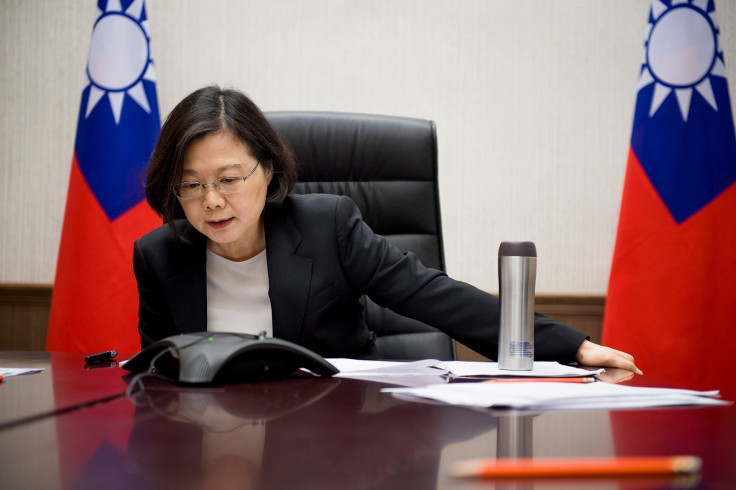Beijing's cherished 'One China' dream is over – Taiwan will no longer be a pariah state
The island nation is ready to fight the diplomatic isolation the Chinese have imposed for decades.
Taiwan rarely gets to make calls overseas, so when its president, Tsai Ing-wen, called US President-elect Donald Trump last week, the reaction was instantly explosive – with the exception of the one quarter in which fireworks might reasonably be most expected, China.
It is likely that Beijing's so-far muted reaction to the first direct exchange between a Taiwan leader and a US president or president-elect in four decades is due to the fact that the Chinese government is bureaucratically slow to respond to change. In this case, it was completely taken off guard.
Chinese state media initially reacted favourably to Trump's election, painting him as a no-nonsense deal-maker who would put money ahead of politics (and turn a blind eye to, say, human rights issues).
It is highly unlikely that the Chinese government strategised a reaction to a Trump presidency that was prepared to turn the tables on nearly four decades of US-China relations – and certainly not this soon and without warning.
Beijing's first public reaction to last Friday's phone call was to do the obvious and blame "sneaky" Taiwan, with reference to an "inexperienced" Trump. That now looks like wishful thinking, with evidence mounting that the phone call was a calculated move.
Assuming that to be the case, before considering how China might react in the months ahead, it is worth considering the fact that the foundations of China's relationship with the US were largely built on wrangling over Taiwan's status. First negotiated by Richard Nixon and Henry Kissinger in Beijing in 1972, after severing diplomatic relations with the Republic of China on Taiwan in 1979, the US has tiptoed around China's claims on Taiwan ever since.
The reason for this is easy enough to understand: For the Chinese Communist Party (CCP), the idea that Taiwan is an inseparable part of the Motherland is sacrosanct – an emotional issue as much as it is strategic – and the stronger China has become, it seems, the more it has asserted that claim through emotional bullying. The current president of Taiwan is usually referred to as Taiwan's leader, for example, because to state the truth would be to hurt China's "feelings".

China will kick and scream, it will bluster and threaten, but ultimately it will blink.
Hence innumerable complaints from Western observers, China-based reporters and China experts that Trump had stumbled into "highly nuanced" territory and was out of his depth. All diplomacy is nuanced, but US-China diplomacy in the Taiwan Strait is particularly so, largely because the greater the strides Taiwan has made to democracy and political maturity the greater China's efforts have been to isolate it and to muzzle international support for the island.
At this point, China has effectively rendered Taiwan impotent on the world stage. China did this on the assumption that, however the US acted, the one tenet of diplomatic relations it would not challenge is China's exile of Taiwan into the diplomatic wilderness. In effect, the CCP has been mollycoddled while transforming one of the world's trading powerhouses into a pariah state – the de facto nation that nobody dares to name.
It is clear today that this has been a mistake. It serves neither U.S. nor Taiwan interests, and it has made China over-confident in advancing its regional agendas. Unwittingly, China has extended its reach while simultaneously backing itself into a corner.
The carnival of US politics was always likely to cough up a play-hardball-with-China president. Now that moment has arrived, with Taiwan diplomatically ring-fenced and blocked from every international organization you care to mention, China has no cards left to play other than the threat of military action.
The latter is likely, but how far would China go?
If Trump's engagement with Taiwan and his subsequent anti-China tweets solidify into a new policy posture, Beijing will feel compelled to do something, but – accustomed to getting its way – it will find itself in uncharted waters and without a ready plan of action.
China might simultaneously ratchet up tensions with Taiwan and harden its stance against the US geopolitically, but with Trump apparently keen to warm ties with Russia, it will find itself with few allies other than those that are for sale. There is little leverage left to economically hurt Taiwan and a trade war with the US would hurt China as much – if not more – than the latter.
Meanwhile, consider this: Every U.S. president since George H.W. Bush has met with the Dalai Lama and with no repercussions other than boisterous protests and formal complaints by Beijing. If the Trump-Tsai phone call is the prelude to a pivot to Taiwan – with which the US has far more shared values than it does China – the same is likely to be true.
After all, the CCP has nothing to fear from its own people. It will not be toppled in an election for caving in on Taiwan. It can reference the problem obliquely in the People's Daily, describe it as a temporary roadblock, censor all discussion of the issue on social media and deal with the reality that its cherished dream of a "one China" that includes Taiwan is exiting the stage of history.
Wu'er Kaixi is a Chinese writer and dissident and a veteran of the 1989 Tiananmen protests. He is also founder of Friends of Liu Xiaobo.
© Copyright IBTimes 2025. All rights reserved.






















